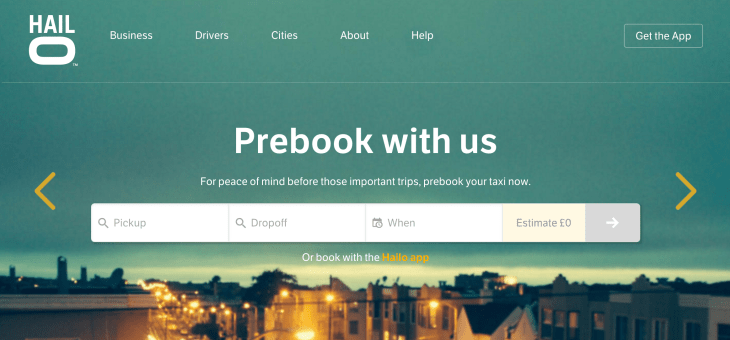Some more movement and consolidation is afoot in the on-demand transportation industry, specifically in Europe. Today, Hailo is announcing that it has sold 60% of its company to Mercedes-Benz owner Daimler, and Hailo will merge its and rebrand its operations under MyTaxi, another on-demand ride-sharing company that was acquired by Daimler subsidiary Moovel in 2014.
The merged company will become one of the biggest car-hailing companies in Europe, scale that could help it compete against players like Uber, which has been aggressive in its European expansion.
Sky reported last night that there was a deal in the works between the two companies.
As part of the deal, Andrew Pinnington, the current CEO of Hailo, will become the CEO of MyTaxi, while Niclaus Mewes, the co-founder of MyTaxi parent Intelligent Apps, will become an MD at Daimler overseeing the carmaker’s wider efforts in the transportation industry.
(Below the article is an interview I had with Pinnington at the end of last year on the challenges of scaling and competing against Uber and others in the transportation market in Europe.)
To be clear, this is an on-paper deal only, meaning there is no cash being exchanged as such and no new valuation for Hailo, and Hailo is keeping all of its previous shareholders.
The company to date has raised $100 million, and Pinnington told me that he had been trying to raise more money when one of his current investors — they include Accel, Atomico, Japan’s KDDI, Union Square and Wellington — was approached by one of MyTaxi’s bankers about a potential combination.
“Both of us were out looking for funding,” he said in an interview, “and even though they are 100% owned by Daimler they are keen to have other investors and they were knocking on doors looking for further funding.
“What’s starting to happen in this industry is that you are starting to see the emergence of regional winners and funding is starting to happen for those, whether they are Ola or Grab or Lyft,” he continued. “And while our plan and targets resonated with the investment community, we were both going to them with the same story, which is that we both wanted to be European number one.”
Hailo and MyTaxi have very little overlap at the moment, he pointed out, with Spain being the only notable exception. Otherwise, MyTaxi is in Germany, Australia, Italy, Poland, Portugal and Sweden, while Hailo — after retrenching from North America and going through many other growing pains — is currently strongest in the UK and Ireland. “We think we’ll create the clear number one in Europe by putting our businesses together,” he said.
As part of this, he also added that Hailo would be “gradually winding down” everything but a small operations team in its UK HQ in London, with all R&D moving over to Germany and MyTaxi, as that will be the common platform that will be used across the merged company.
There are around 75 people working in the UK office today, and that will come down to about 20, he said.
Hailo’s move to Daimler is part of a wider trend that has seen big stakes taken by several other carmakers in on-demand transportation startups. They include Toyota (which invested in Uber), GM (which invested $500 million in Lyft) and VW (which invested $300 million in Gett).
The bigger context is that car companies are gearing up (sorry) for a future in which average consumers may be purchasing fewer new cars and making those buys less frequently, but still need transportation options to get from point A to point B. Companies like Uber have been leading the way in providing alternatives to directly-owned cars to meet that demand, in particular by offering services that may be competitive with public transportation, or filling a gap where no public transport alternative exists.
And these investments in the next generation of transportation extend to other areas, too. Daimler earlier this month also acquired an auto leasing company, Athlon Car Lease, for $1.8 billion, and in its last quarterly earnings it also announced more commitments to investing in electric and autonomous driving tech.
It’s also trying to make sure it has a stake in some of the key components that will form the “dashboard” for connected cars: it is a part-shareholder in Here, the former mapping division of Nokia that was acquired by a car consortium of Daimler, BMW and Audi last year for $2.8 billion.
Pinnington said Hailo is currently profitable in each of its markets, and MyTaxi is profitable in some but not all of its local operations, as it has been investing in marketing in growth.
Ironically, he had considered a MyTaxi merger as one option for Hailo 18 months ago, when he first joined the company as CEO.
“I even created a slide for a presentation in April 2015 where I laid out our plan to move the next level. Stage 2 was to expand out and dominate in Europe and option for doing that, on my slide, was to join with MyTaxi to create a number one,” he said. “It was very much a potential option on the menu, which is why, when the suggestion came in, I thought that was one we should try and jump on.”
